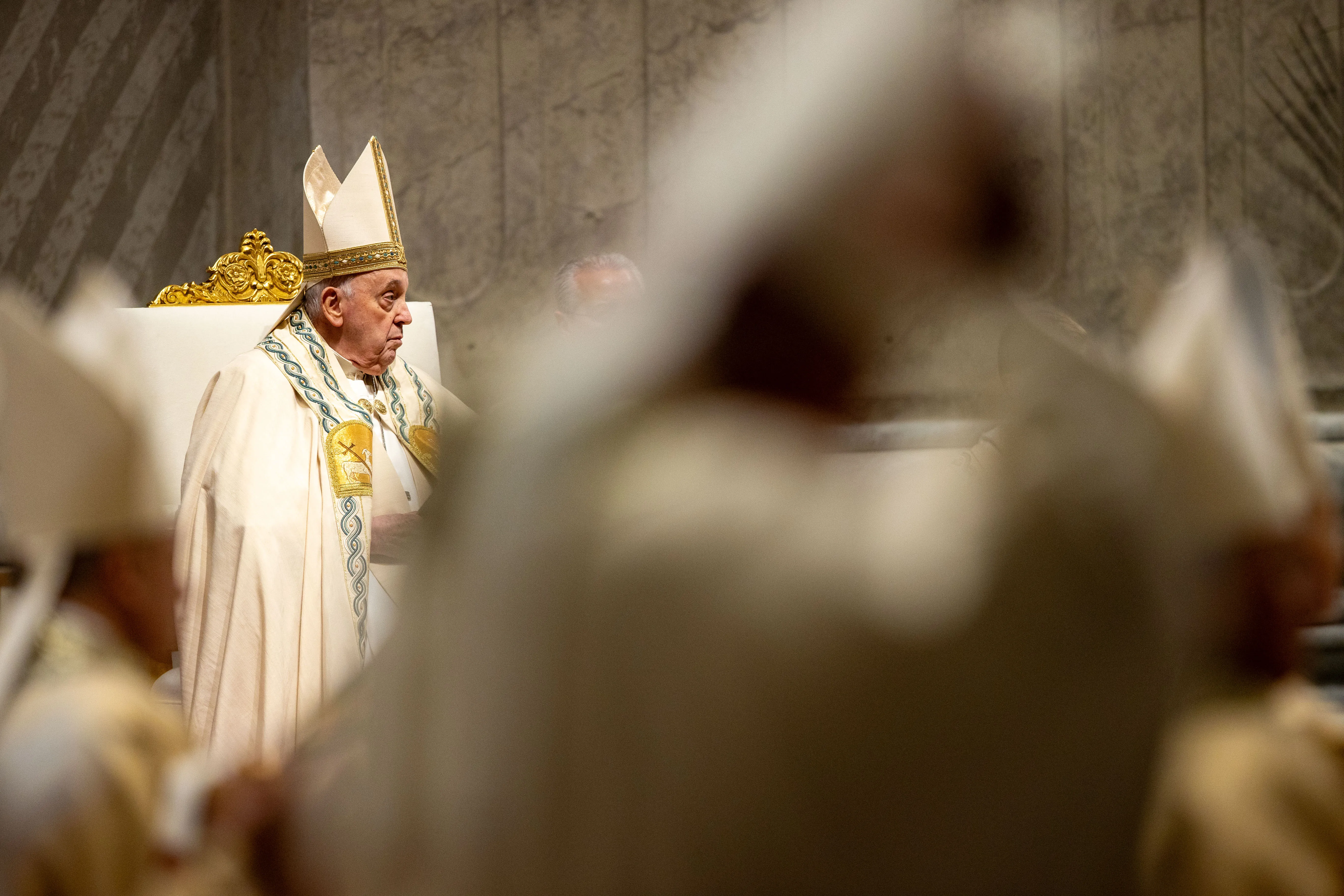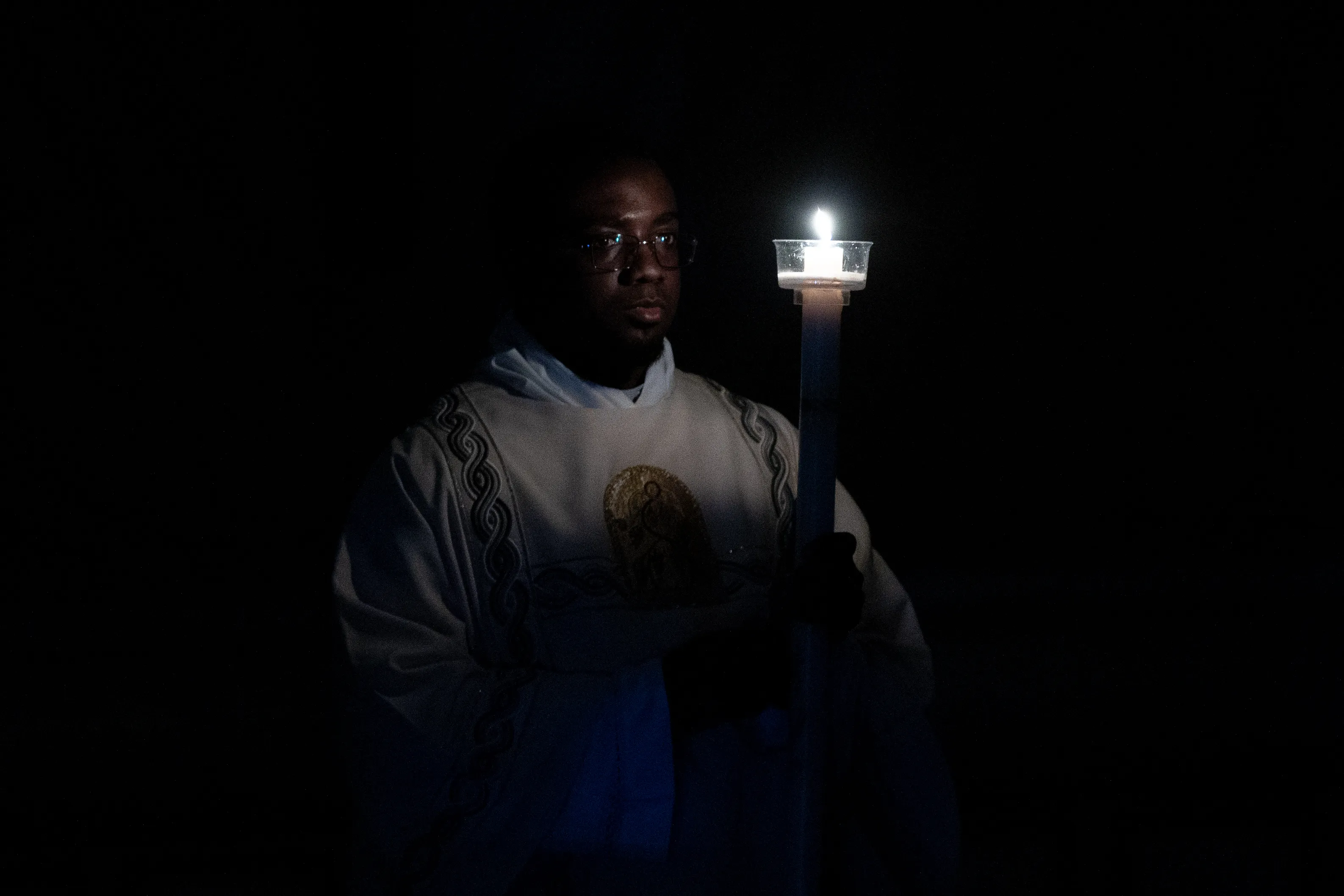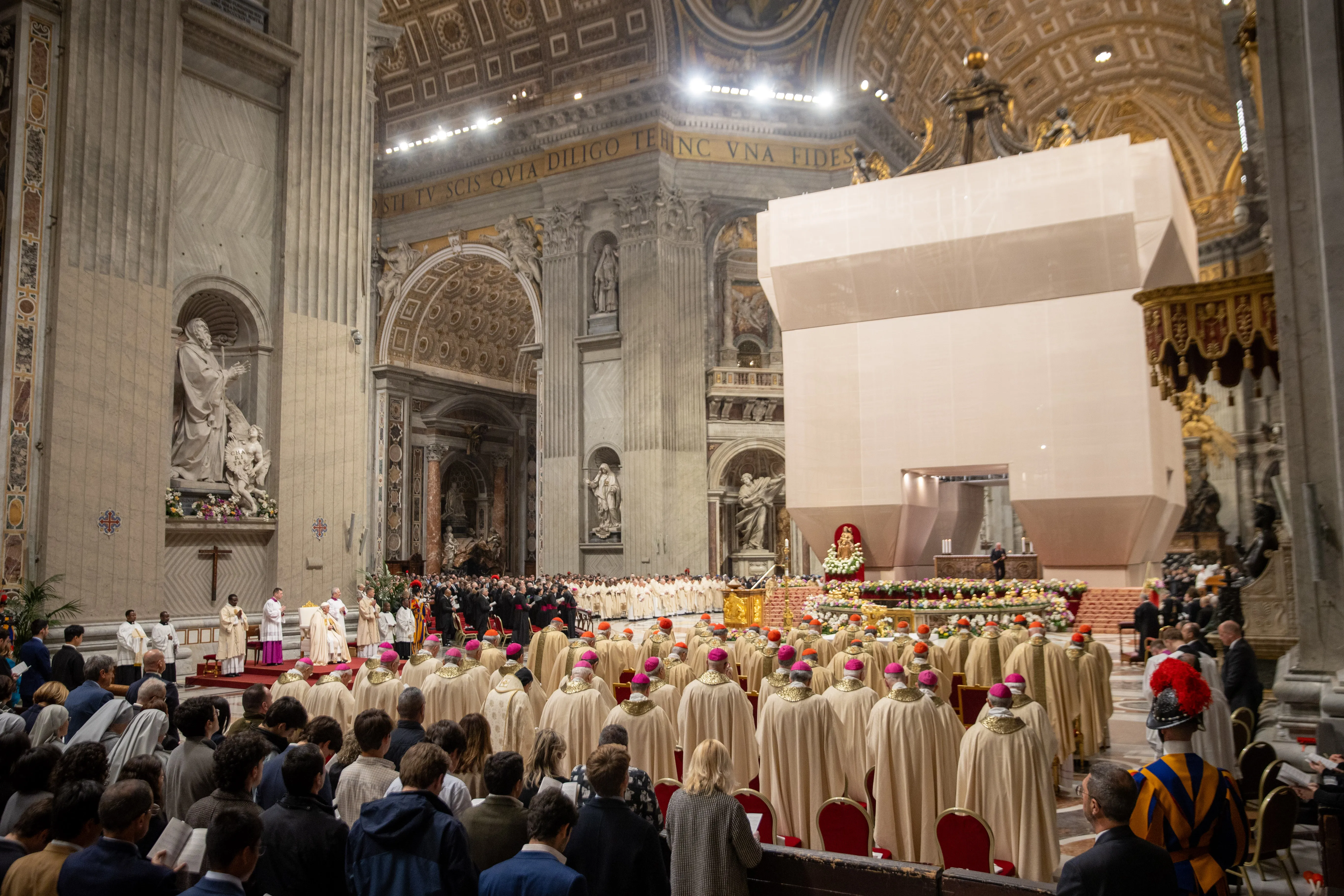
Rome Newsroom, Sep 14, 2023 / 12:55 pm (CNA).
Scandinavia’s top Church leader hopes the role of women in the Church’s mission is a focal point at the upcoming synodal assembly on synodality — and, therefore, that the conversation isn’t bogged down on the settled question of whether the Church can ordain women.
“It would be very frustrating if the discussion was limited to this issue that cannot lead further, as priestly ministry is reserved to men in Catholic and Orthodox doctrine,” Cardinal Anders Arborelius, ordinary of the Archdiocese of Stockholm, told the National Catholic Reporter in an interview published Sept. 13.
Arborelius, who became the first cardinal ever from Scandinavia in 2017 and was made a member of the Vatican’s Dicastery for Bishops in 2022, will be one of the 360-plus voting participants at the October synod. The gathering, which will be held from Oct. 4–29 and followed by a second assembly in October 2024, is focused on how the Church can better incorporate its members into its life and mission.
Although synod organizers have insisted the event is not about changing doctrine, the event’s Instrumentum Laboris, or working document, explicitly asks whether “it is possible to envisage” “the question of women’s inclusion in the diaconate.” Some participants, such as San Diego Cardinal Robert McElroy, have actively pushed for women’s ordination to be a focal point of the proceedings, as have outside initiatives such as the Synodal Way in the Catholic Church in Germany.
The Church’s inability to sacramentally ordain women — which is often falsely portrayed as a “ban” in some media accounts — was confirmed in 1994 by Pope John Paul II, who wrote in Ordinatio Sacerdotalis that “the Church has no authority whatsoever to confer priestly ordination on women and that this judgment is to be definitively held by all the Church’s faithful.”
Pope Francis has also repeatedly affirmed this truth, stating in November 2016 that John Paul’s teaching was the clear and “final word” on the issue. More recently, Pope Francis told America magazine in 2022 that the fact that women cannot enter ordained ministry “is not a deprivation” and that the Church should continue to develop a “theology of women” and expand women’s participation in ecclesial life.
Arborelius made similar comments in his interview with the National Catholic Reporter, which was conducted during his August visit to the United States to participate in an ecumenical dialogue on St. Thérèse of Lisieux.
“It is of the utmost importance to find more possibilities for women to take part in the work of evangelization on various levels,” Arborelius said. “At the same time, it is important to see that there are other ways than ordained ministry.”
If you value the news and views Catholic World Report provides, please consider donating to support our efforts. Your contribution will help us continue to make CWR available to all readers worldwide for free, without a subscription. Thank you for your generosity!
Click here for more information on donating to CWR. Click here to sign up for our newsletter.









Like Keanu Reeves in the Matrix [inspiration by Francis X Maier article] Card Arborelius has taken the red pill rather than remain in the anesthetized state of his down South compatriots.
Nordic bishops are outspoken in criticizing the trend toward heterodoxy within our Church. Perhaps it’s similar to a newer Church similar to Nigeria’s heroic witness amid murderous Islamists. Although the Lutherans aren’t murderous, at least not in comparison. Liberally aggressive perhaps. Intellectually adrift. Ingmar Bergman’s films reflect the search for meaning. At any rate it’s complex. At least their bishops have something to offer. Would that their spirit enlivens
their compatriots.
The Nordic bishops…sort of peripheral?
Might we hope that all of the new bishops and cardinals of the “periphery” in Africa and Asia will see with non-secularist eyes, unlike much of the West, and exert their evangelical and institutional influence at the Synods and at the next conclave?
As if, rather than “primarily as [yes] facilitators,” they are “sent” (apostello), firstly and truly primarily as successors of the apostles. Sent by the historical and incarnate Jesus Christ–the incongruous, “concrete,” and leavening fact (!) at the center of all ambulatory human history, and more than one pluralist idea among many.
Nordic bishops are reactive to a Lutheran culture, whereas bishops in the West, specifically Europe are products of a dying religious culture influenced by secularist intellectual trends. Our US bishops are in a gradual trend toward the European model nevertheless more reactionary to secularism. Bishops Strickland, Cordileone examples of that reaction.
All bishops are first of all defenders of the faith as successors of the Apostles. This is the battle line perpetrated by this pontificate and challenged by a very few Strickland the standout. Fr Gerald Murray articulated this dynamic on World Over and the apparent rationale for which he’s being prosecuted if not persecuted. This is spiritual life and death matter to be taken with due appreciation. Analogously, we’re, that is, those of us prepared to defend the faith at whatever cost are the thin black line of clergy who stand to fight in the shadow of the Cross [wording inspired by Therese of Lisieux]. Strickland deserves our full support. In terms of honor he requires our support.
You’re correct, there is no periphery at play here, there are men prepared to give the glory of their loyalty to Christ.
As a woman myself, I have no interest in attending a “Mass” conducted by a woman. I have seen such conducted at protestant churches and I find them lacking. Nor could I envision going to confession to one. Why don’t these women stick to the many ministries already open to women? I am tired of hearing about this topic, as are many Catholics. Its also a certainty I would not support it financially.
Well, I left the Catholic Church for many years when I felt a call as a woman toward becoming a deacon, and realized I was denied this on the basis of my genetics. Somehow I missed that entire part of my upbringing as a Catholic, and even into my adulthood when I was struck by, basically, a “born again” episode at age 27 and plunged into study and prayer. Well, my journey from there took me to 2 other female-led churches within the Episcopal Church, in the pain of rejection by my own Church. At first, it was balm, but after 10 years, I realized that the Episcopal Church in general, and our Churches in particular, had been led astray by the emotion of our society instead of sticking with the reality of our Christian faith. I returned to Catholic with much unresolved feelings of betrayal still, but the Body of Christ is what keeps my in the Church and keeps me going. I believe that women have a place as Deacons, and would deeply like to see that emerge for all the roles Deacons can play, but also, because of the way that the other women-led churches have been led astray by emotion and strayed so far as to actively support even abortion, I have to agree, women as priests, therefore with growing power to change our Church, should not happen.
Pauline, for you, the sex of a person seems to figure most prominently in how you practice your religion. So I have a few questions for you.
#1. Does it matter to you at all that the Savior – God incarnate – came among us as a man and not as a woman?
#2. Does it matter to you at all that Jesus Christ did not have a human Father, but a Divine Father and was born of a human mother?
#3. Does it matter to you that the only human person graced by God to be born free of original sin was a woman?
How do these three sexual anomalies/disparities/distinctions figure into your faith as a Catholic? I’d be curious to know what you make of these.
Ordaining women is part of a sure path to shrinking congregations & irrelevance. I returned recently from a trip to the UK & this was the case in each CE church we visited. One cathedral c. 670 AD had exactly three elderly couples attending evening prayer led by a woman clergy member. The church events calendar advertised upcoming Elvis & Abba themed music performances inside the cathedral. Using what should be sacred space for Elvis impersonations might garner a higher attendance than evening prayer but does little for a dwindling church membership.
LJ, I agree completely with all of your points.
To your question of why women don’t stick to ministries open to them, the answer is that the question is not, nor has it ever been, about ministry. It’s all about power, whether perceived or actual. One simply has to listen to any of the arguments in favor of priestesses. All of them involve repetitive use of terms such as “patriarchy”, “hierarchy”, “sexism”, “exclusion” and the like. These are expressions of grievance that refer to power or its lack. These are not the words of those who seek first the salvation of souls or expanded understanding of the splendor of truth (both capitalized and lower case).
What’s critically important to understand is that when the the Church says “no”, She always points at the same time to an exalted “yes”. The key is to find, and to live, the yes. Therein lies the path to eternal life.
I too believe I would be uncomfortable with woman in the role of priests. Mostly, I think because Jesus and the apostles were male. Some would say that was the times, the culture. But yet, the Bible clearly states the role of the husband and a wife in marriage. Priscilla along with her husband Aquila are mentioned as helpers to Paul. She seemed to be an important source of spreading the gospel but she was not a priest. I do get tired of women who insist they are being demeaned, disrespected, etc. if not allowed to be a priest. There are so many ways to participate in the faith.
Well, thanks I guess.
Maybe Cardinal Müller will have one friend. If I recall, that was crucial in middle school
Welcome common sense from Sweden and not for the first time. Who would’ve thought?
Sweden apparently exercised some commonsense during Covid also. At least it seems that way so far.
I never in my right mind thought I’d live to see the day when a bishop from Scandinavia came out as a Defender of the Faith.
(Just in case anyone should be inclined to accuse me of not being aligned with the Catholic Church : “Francis truly IS the Pope.” There, I’ve repeated the required mantra.)
It certainly shouldn’t be a focal point of the discussion. It shouldn’t be any part of the discussion, truth be told.
As a Discalced Carmelite, I am grateful to my Swedish Brother for his clear and charitable presentation of the faith!
I recently posted my own statement on the ordination of women in reply to an article in The Tablet: https://flemingtoncarmel.org/posts/the-place-of-women-in-the-church